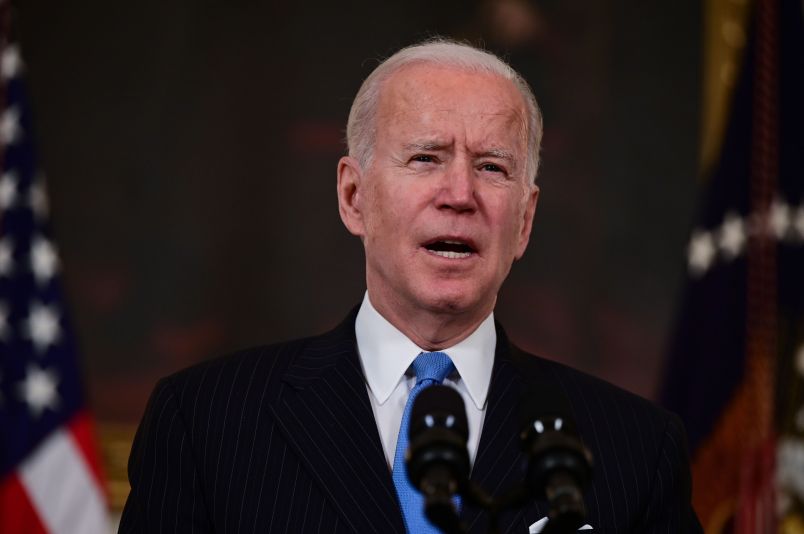President Biden has another opportunity coming up to lean into his campaign promise of being “the most pro-union president you’ve ever seen.”
When I spoke with labor historians yesterday about the significance of Biden’s unprecedented and forceful endorsement of labor in response to Amazon employees’ unionization effort in Alabama, they touched on another big priority for Democrats: the Protecting the Right to Organize (PRO) Act, which could serve as a litmus test for Biden’s pro-union rhetoric.
The PRO Act would serve as the biggest game-changer in labor rights in decades by removing more obstacles for workers to form unions, without employer interference, and effectively ending anti-union “right to work” laws that are currently in effect in 28 states. The sweeping labor legislation has already raised alarms within the business community, with the U.S. Chamber of Commerce warning that it would “fundamentally alter our nation’s system of labor relations.”
The PRO Act passed in the House last month, and now awaits its fate in the Senate. The legislation could languish in the 50-50 split Senate — unless Biden steps in.
“I think the real tell here is going to be the level of support the administration gives to the PRO Act,” said Erik Loomis, a labor historian at the University of Rhode Island.
Loomis anticipated that Biden taking unprecedented action by vocally supporting Amazon employees’ unionization effort is just the beginning, especially as the President’s administration works to roll back right-to-work laws that former President Trump has openly embraced.
But Loomis expects that the PRO Act will “run into the buzzsaw of the filibuster” in the Senate, providing a hurdle for the passage of the progressive legislation. That is, unless Biden forcefully advocates for its passage. Loomis argued that the President throwing public support behind the PRO Act would increase pressure to kill the filibuster that stands in the way of real labor reform.
“I think there is likely to be a big difference between Biden’s support of the PRO Act, which is likely to be relatively active, versus Obama’s very limited energy placed into the Employee Free Choice Act,” Loomis said.
Despite President Obama promising to pass the EFCA during his first presidential run, it died in the Senate and was ultimately abandoned by the administration.
Karen Sawislak, a labor historian and visiting professor at UC Berkeley, offered a similar take.
Although she did not directly suggest that Biden should put more weight behind advocating for the passage of the PRO Act, Sawislak pointed out that the legislation would help Amazon workers who have a long road ahead of them even if they successfully vote in favor of forming a union. The work wouldn’t end there. They would still need to bargain a contract — a stage in the unionization process when employers have had the capacity to slow the process and create more obstacles for the collective bargaining unit.
“(The PRO Act) is kind of this much more comprehensive redo of our labor law that would make important changes not just for the organizing, but also for bargaining and continued functioning of unions,” Sawislak said.


 Members-Only Article
Members-Only Article
